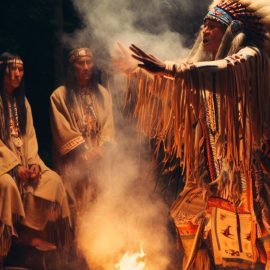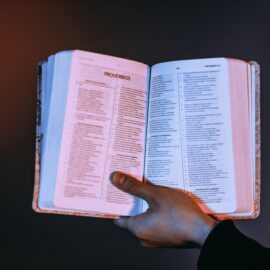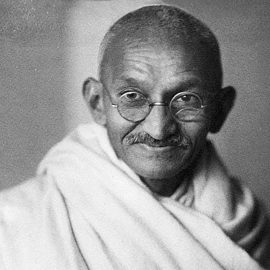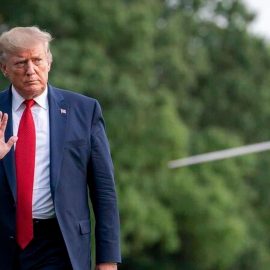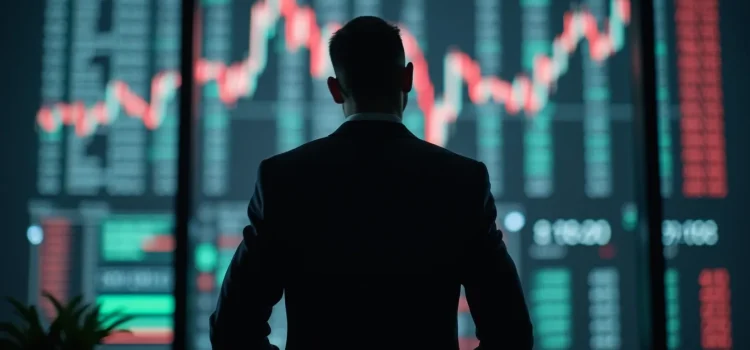

This article is an excerpt from the Shortform book guide to "Gambler" by Billy Walters. Shortform has the world's best summaries and analyses of books you should be reading.
Like this article? Sign up for a free trial here.
What happened in Billy Walters’s insider trading scandal? How did a legendary sports bettor end up in federal prison?
From sports betting success to stock market controversy, Billy Walters’s story reveals the complex world of high-stakes gambling and financial trading. His journey includes multiple legal battles, from raids on his sports consulting business to his eventual conviction for insider trading with Dean Foods.
Keep reading to discover how one of gambling’s most successful players navigated both victories and defeats in his controversial career.
Billy Walters’s Insider Trading Case
Billy Walters’s insider trading case culminated in 2017, but the investigations go back to 2014. He discusses this in his autobiography, along with legal problems related to his sports betting.
(Shortform note: Insider trading means using knowledge that isn’t publicly available to gain an unfair advantage in the stock market. This is illegal because it undermines the public’s trust in a free and fair market, and could therefore discourage people from participating in said market.)
Walters explains that he began to dabble in stock market investing in the late ’90s. It didn’t become a problem until 2014, when the Wall Street Journal and the New York Times ran articles suggesting that Walters had traded on insider information. These articles claimed he’d received information from Carl Icahn—a hedge fund manager and a friend of Walters’s—regarding Clorox, a company in which Icahn held a large stake.
(Shortform note: Walters somewhat overstates what the articles in question said: The publications did not write, nor even imply, that he and the others were guilty of insider trading (to make that claim before they were convicted would have been libel). The articles only stated—correctly—that the men were being investigated for insider trading. The New York Times article in particular noted that, even if Icahn had advised Walters to invest in Clorox, that was most likely not illegal. Since Icahn was not on Clorox’s board, he had no duty to keep whatever he knew about the company a secret; in other words, he was not an “insider” and therefore couldn’t have committed insider trading.)
The FBI’s initial efforts revealed no wrongdoing, but the agency continued to investigate Walters, looking for other evidence of illegal activity. The investigation eventually shifted to Walters’s relationship with Thomas Davis, who sat on the board of Fortune 500 company Dean Foods.
Federal agents had separately investigated Davis and found him guilty of embezzling funds from a Dallas charity, forcing him to make a plea deal with the FBI: To avoid jail time and other penalties, he pled guilty to the charges and provided information the FBI could use against Walters, testifying that he had given Walters nonpublic information about Dean Foods.
(Shortform note: Contrary to what Walters writes in Gambler, Davis did not fully escape accountability despite his plea deal. In 2015, Davis suddenly and unexpectedly resigned as chairman of Dean Foods—although this happened following a sharp decline in sales, and it’s unclear whether Davis’s departure was related to the embezzlement case. Furthermore, Davis was made to pay $9 million in restitution, fined an additional $1 million, and sentenced to two years in federal prison for his crimes.)
In 2017, based on Davis’s testimony, a federal jury convicted Walters of relying on nonpublic information from Davis to earn an additional $32 million in profit and avoid $11 million in losses. As punishment, he was fined $10 million and sentenced to five years in federal prison—though he was released a year early when then-president Donald Trump commuted his sentence in 2021.
(Shortform note: The Trump administration cited Walters’s reputation and philanthropic work—in addition to the fact that he’d already served the majority of his sentence—in the official statement about Walters’s pardon. As one example of his philanthropy, Walters and his wife Susan were named the Las Vegas Philanthropists of the Year in 1997, and they’ve continued to support various charitable organizations since then.)
Other Legal Problems
Billy Walters’s insider trading case wasn’t his first legal problem. In his book, he discusses his gambling-related run-ins with the law in Louisville and Las Vegas.
Walters’s Arrest for Bookmaking
In the late 1970s, when Walters was living in Louisville, Kentucky, he began illegally working as a bookmaker after going bankrupt from gambling away the money from his used car business. This was at a time when Louisville’s mayor was seeking to crack down on gambling rings.
His one-man bookmaking scheme quickly became a five-person operation that pulled in $6.5 million in wagers in 1982. As his operation grew, it drew the attention of local police and eventually resulted in Walters’s arrest.
Although Walters avoided jail time, he nonetheless decided that his current lifestyle was too risky. As a result, he moved with his family to Las Vegas, where sports betting was legal.
(Shortform note: Whether gambling should be legal is an ongoing debate. Arguments against legalization include that gambling is addictive and destructive (as Walters’s own story demonstrates), and that it’s simply another means for the rich to extract money from the poor. Some also argue that gambling is immoral because it encourages greed and discourages hard work; the promise of gambling is that all you need is a bit of luck and you could be set for life. In spite of those arguments, sports betting is now legal in all but 12 states. Nevada—home of Las Vegas—legalized sports betting in 1949, and the other states legalized it one by one throughout the 2010s and 2020s.)
The Raid on the Computer Group
Back in the early 1980s, he became a key member of the Computer Group, a sports betting syndicate that used complex computer modeling to beat Las Vegas betting lines—the bookmakers’ predictions about which teams would win and by how much. In 1985, federal investigators came to suspect that the Computer Group was a massive, unsanctioned bookmaking operation.
According to Walters, the FBI sought to crack down on illegal bookmaking schemes in the 1980s. However, he clarifies that the Computer Group was actually a betting syndicate, meaning they were placing bets rather than taking them. This is a crucial point because placing bets, even as part of an organized group, is not against the law and does not require a state license like bookmaking does.
For the next seven years, Walters and other members of the Computer Group were subjected to repeated investigations, raids, and trials. When charges of illegal bookmaking didn’t stick, the Justice Department reinterpreted laws to say that placing bets across state lines (which the Group regularly did) was a crime. However, even though bookmaking was illegal outside of Nevada at the time, using an illegal bookmaker was not itself illegal, so Walters was also acquitted of these new charges thanks to that legal loophole. In 1992, the federal government finally announced that it would drop all remaining charges against the Computer Group members.
Even so, the stress and publicity of the investigation, along with tension among the leadership, directly led to the Group’s dissolution.
The Raid on Sierra Sports Consulting
In 1992, because of legal trouble and a growing desire to bet at levels that the Computer Group couldn’t support, Walters founded his own company, Sierra Sports Consulting. However, he continued to have run-ins with the law. According to Walters, Las Vegas police unjustly raided his consulting group and seized around $5 million of his winnings in 1996.
Although the Las Vegas district attorney declined to press charges after reviewing the evidence, the attorney general moved forward with a false accusation of illegal bookmaking. Over the next six years Walters successfully fended off several different indictments: first the illegal bookmaking charge, and then various money laundering charges.
It wasn’t until 2002, when the chief district court judge of Las Vegas ruled that the attorney general’s case had been based on prejudice and unfounded allegations, that the charges were all dropped and Walters got back the $5 million the police had taken.
(Shortform note: Gambling is a common way for criminals to launder their money. By wagering illegally gotten funds with a casino or bookie, then taking that money back in the form of legal winnings, such people are able to conceal where their wealth originally came from. However, because Walters had earned his money legally, money laundering laws did not apply to him and the charges didn’t stick.)

———End of Preview———
Like what you just read? Read the rest of the world's best book summary and analysis of Billy Walters's "Gambler" at Shortform.
Here's what you'll find in our full Gambler summary:
- How a man born into poverty made over $100 million
- The three components of Billy Walters’s winning approach to sports betting
- Why Billy Walters went to prison and what he learned there

